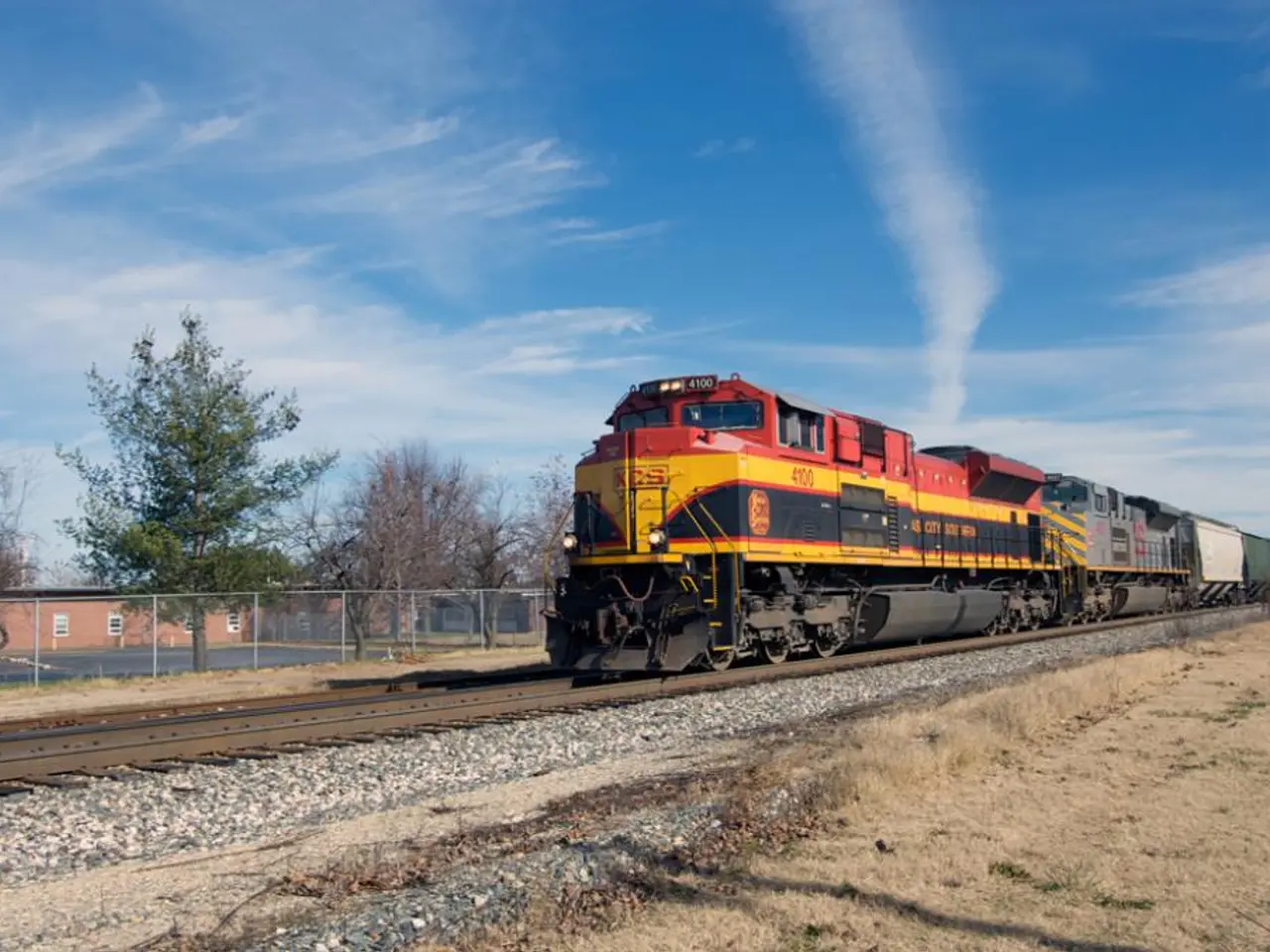Trains collide with livestock in six different areas
In recent times, there has been a concerning trend of railway incidents in Kazakhstan, primarily caused by livestock wandering onto tracks. Over the past 24 hours, such incidents have been reported in the territories of Akmola, Almaty, Zhambyl, and Jetisu regions.
These incidents, which have resulted in emergency braking or collisions, pose a significant risk to the safety of passengers, locomotive crew members, and other road users. They also cause disruptions, damage to rolling stock, and potential unsafe conditions on the railways.
The root causes of these incidents can be traced back to several factors. Grazing livestock near railway tracks, insufficient or broken fencing along railway corridors, seasonal migration or herding practices, and the rapid expansion of agriculture and livestock farming are all contributing factors.
The economic impact of these incidents is substantial. Interruptions lead to freight delays, repair costs, and potential livestock loss, affecting farmers and the broader economy. Additionally, there are environmental and animal welfare issues, as improper grazing enforcement may contribute to sustained risks for endangered or valuable livestock species.
To address this issue, Kazakhstan has regulations in place controlling grazing near infrastructures like railways. Violations generally incur monetary fines or penalties, enforced by local authorities. However, the exact details of these fines are not readily available in the current data search.
In light of these incidents, the transport police have issued an appeal to livestock owners, emphasising the need for responsible grazing practices near railway lines. Since the beginning of the year, 893 cases of emergency train braking have been registered, and the owners of animals that violated grazing rules within the railway's right of way have been held accountable.
It is crucial to note that these incidents not only pose a threat to the safety of train movements but also cause economic damage to the country's railways and lead to disruptions in train schedules. Recent cases have involved large horned cattle in Kyzylorda and Almaty regions.
As Kazakhstan aims to increase meat exports by modernising agricultural policies, improved livestock management near infrastructure will be essential to reduce losses and incidents. The global trend in Central Asia to regulate migration of people and animals carefully may also indirectly impact grazing practice monitoring and enforcement.
To gain precise and updated information on fines and incident statistics, consulting Kazakhstan’s Ministry of Transport, Agriculture, or local railway authorities’ reports is recommended.
- Science research related to the prevention of railway incidents in Kazakhstan could focus on implementing solutions for responsible grazing practices near railway lines, as the incidents have been linked to factors such as grazing livestock, insufficient fencing, and rapid agriculture expansion.
- In the realm of health and wellness, the impact of railway incidents on the mental and physical health of passengers, locomotive crew members, and other road users should be considered, as these incidents pose a significant risk to their safety.
- General news outlets could report on crime and justice issues related to railway incidents, such as cases where livestock owners have been held accountable for incidents that have violated grazing rules within the railway's right of way, and the fines or penalties enforced by local authorities.




